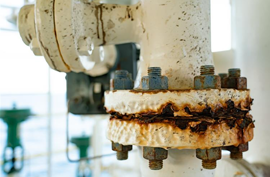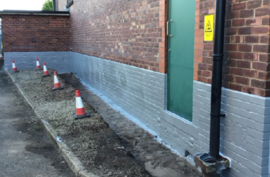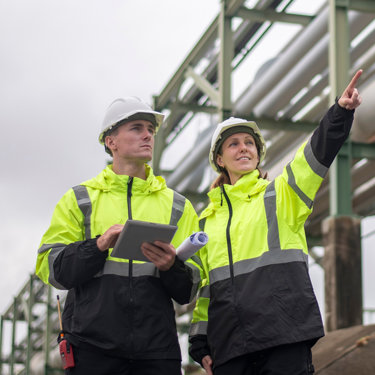The issue of microbial contamination in biodiesel in storage tanks
Published: 10 July 2020
When explaining the issue of microbial contamination in storage tanks, a focus on testing and storage integrity is critical as degraded fuel quality can have a direct impact on the effectiveness of your operations.
Microbial contamination
As a result of heightened regulatory measures to decrease greenhouse gas emissions and reduce reliance on fossil fuels, the composition of the fuels we use has changed dramatically in recent years.
Traditionally when straight hydrocarbon fuels were used, a 50 year old fuel storage tank that had never been cleaned out would have no issues at all so long as the suction point – the point where the fuel leaves the tank – was above where the water and sludge was sitting. But when biodiesel blends were introduced about 11 years ago, all those tanks started to fail.
The reason was, modern biodiesel is especially hydroscopic, attracting and holding water molecules from the surrounding environment creating a microbial contamination in the tank (also known as diesel bug). When water finds its way into a tank as a result of condensation, rainwater penetration or from the air, microbes, such as bacteria and fungi, occur at the interface between the oil and water or on the tank walls.
This kind of diesel contamination not only accelerates tank corrosion, it can block lines and filters and significantly reduce the performance of the fuel itself. This can be a particular issue in tanks storing fuel for long periods of time.
Degraded fuel quality
Because biodiesel absorbs a lot more water than diesels of old, it can significantly reduce fuel quality and performance if not managed properly.
Microbial growth can happen very quickly. From one year to the next you can have a clean bill of health to heavily contaminated fuel.
Fuel is a very expensive commodity. If you’ve got 50,000 litres of diesel in a tank, that’s £25k of fuel at risk of contamination.
If fuel contamination does occur, thankfully all is not lost. We can take fuel samples and test these in our UKAS accredited lab to identify the sources of infection. If an issue is found we would advise on the best resolution which might involve uplifting the fuel, adding bacterial additives, or employing fuel polishing techniques to remove infected material, before returning the clean fuel to the tank.
A maintenance nightmare
Even a minute presence of water in a tank system can create a maintenance nightmare including biological activity, increasing corrosion, blocking filters and lowering pump flow rates. Testing has therefore evolved from a best practice discipline to a critical part of the tank maintenance process.
Investing in remedial work should now be essential to your fuel systems operations, especially when you consider microbial contamination can accelerate tank corrosion by as much as 1mm per year, meaning a new steel tank could fail in less than seven years.
During the fuel polishing process, it would be advisable to have your tank cleaned, and sludge, water and microbes removed, so the polished fuel will remain in the best possible condition when it is returned.
The key to all of this is how seriously you look after your storage tank. Biodiesel is a breeding ground for micro-organisms that will affect the fuel and damage the tank. And it will continue to be an issue as the percentage of biofuels blended into diesel is expected to increase.
A focus on integrity is critical
Every time you put a new load of fuel through a tank, it’s adding another contaminant, but the risks are reduced if you’re checking your fuel regularly and making sure it is water free.
The best course of action is prevention. We provide regular fuel testing through our UKAS accredited laboratory, together with tank maintenance services, because an absolute focus on integrity has never been more critical for today’s fuel systems.
More from our Knowledge Hub
 Insights
InsightsMitigating climate change risks through planned preventive maintenance
 Insights
InsightsProtective coatings: Safeguarding infrastructure against climate change
 Insights
InsightsDelivering the Water (Special Measures) Act: Supporting compliance and innovation
 Insights
InsightsA guide to navigating climate change regulations for UK businesses
Environmental compliance today, creating a sustainable tomorrow
Helping you reduce risk to the environment and your operation by managing assets compliantly while achieving commercial, ESG, and net-zero goals.
Contact our experts

